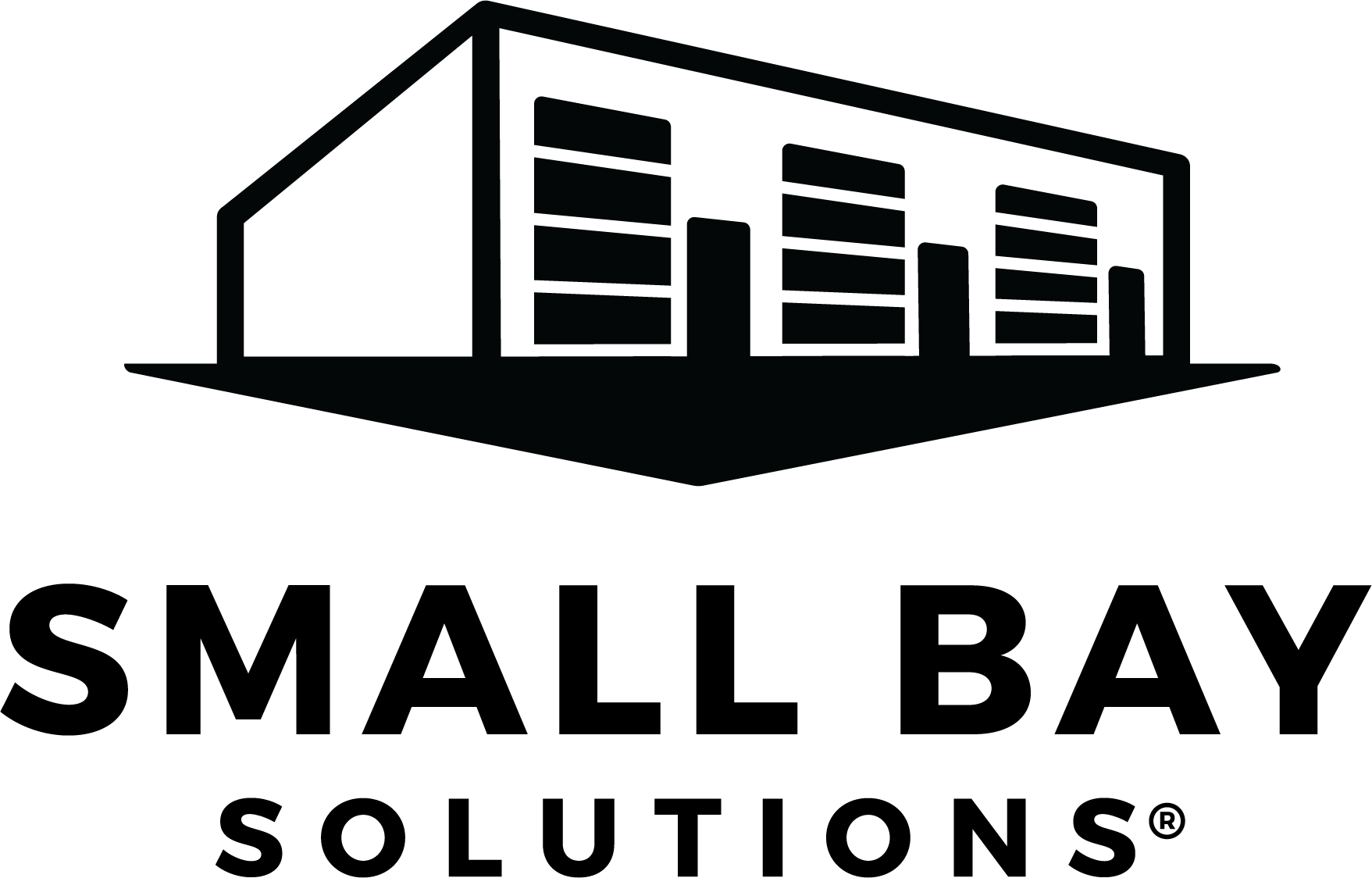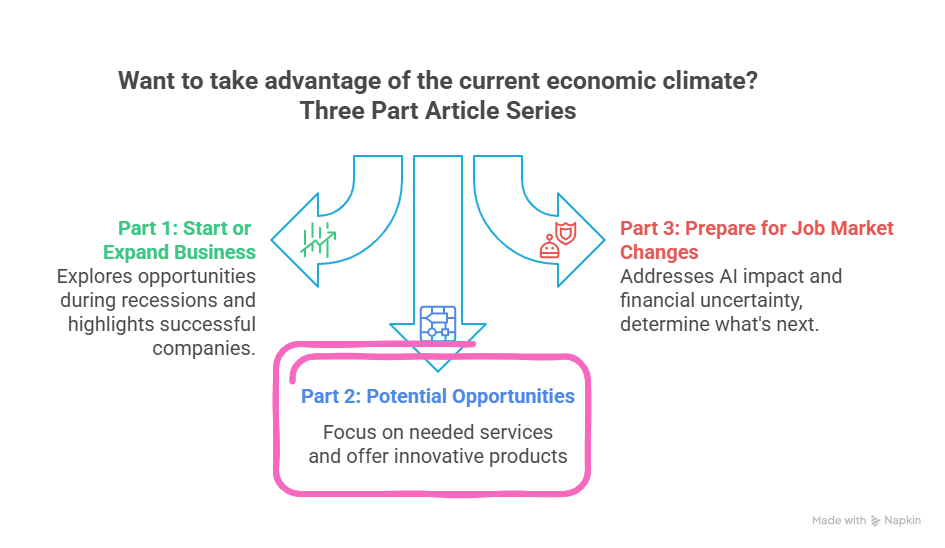If you didn’t catch Part 1 of this series, go back and give it a quick read—it’s a fast, energizing look at who has succeeded during downturns, recessions, and even pandemics. Today, I want to take a moment to celebrate a real-life example: one of our very own tenants at Small Bay Solutions® who leaned into uncertainty and came out thriving.
Bryan McCoy of McCoy Custom Carts shared at his ribbon-cutting last week that he turned his $1,000 COVID relief check into a $10 million business. With his third location now open here in Springdale, Arkansas, it’s clear he made his money work for him when most people were simply trying to get by. Bryan did exactly what every aspiring entrepreneur should do during uncertain times: put your head down and turn up the heat on your drive to build better options, better jobs, and better lives—for your family and your community.
So, maybe now you’re convinced that starting or expanding a business during a volatile time is possible. But what kind of business should it be? Keep in mind Small businesses account for 40% of the our nation's economic output and 45.9% of U.S. workers are employed by small businesses (U.S. Small Business Office of Advocacy).
Industries That Are Primed for Expansion
1. Service-Based Industries These businesses tend to weather economic uncertainty well because they address essential needs:
- AC repair, plumbing, roofing—these services are always necessary.
- Focus on work that requires a human expert. AI might streamline processes, but it can’t replace skilled trades.
2. Problem-Solving Businesses When pain points shift, people need solutions:
- Consulting services for small business owners adjusting to supply chain disruptions, tariffs, or rising costs.
- Logistics and fulfillment are being challenged. Can you help bridge those gaps with local, nimble services?
3. Health and Wellness Increased stress and instability often lead to rising demand in this sector:
- Mental health services, holistic health offerings, supplements, and digital wellness tools are all in demand.
- Businesses that make people feel better—physically or emotionally—have room to grow.
Businesses That Embrace AI Will Thrive
Right now, countless entrepreneurs are upskilling, streamlining, and monetizing their work through AI tools. If your business isn’t exploring this yet, it’s time to stop making excuses and start experimenting.
Here are a few tools I use myself:
- Napkin.ai – Makes easy, beautiful graphics. Great for quick, polished visuals (like the one in this article).
- Gamma.app – Turn messy notes into clean, professional presentations. I still like to write my own content, but this tool formats ideas beautifully.
- Toolfinder.co/tools – Not sure which tool you need? This site helps you browse hundreds of AI tools by category or task.
Pro tip: Make sure you're using ChatGPT-4 or another advanced model—not the free GPT-3.5 version, which is trained on data that's three years out of date. If you're using AI to help with decision-making, marketing, or product development, you need current data.
AI shouldn’t just help you work faster—it should also help you offer new services to your clients. It’s a value add for them, not just for you.
If You’re Worried About Your Current Business
“During downturns, people don’t stop spending—they just become smarter about what they spend on.” — Forbes Small Business Council, 2023
What can you do to make your business one of those “smart” purchases? Ask yourself: how can I become essential to my customers?
During Prohibition, Coors couldn’t sell beer, so they pivoted to selling malted milk. That’s right—milk. They used their bottling equipment to stay afloat and came back to beer when the time was right, however, they continued making malted milk till 1957. Flexibility kept the business alive.
Still not sure what to do? Here’s a fun idea: copy this article into an AI tool like ChatGPT and ask, “How can I apply this advice to my skillset?” Add details about your strengths, passions, or challenges, and see what it generates.
And if you want non-AI resources, start with SBA.gov. Their site is full of free tools and learning modules—covering everything from strategic marketing to accessing capital and scaling globally.
In uncertain times, don’t just survive—build. There are opportunities ahead for those willing to pivot, imagine, and act.
Up next in Part 3: the uncomfortable truth about the changing job market. Does the word “AI” give you a nervous twitch? Let’s talk about job security, layoffs, and how to proactively prepare for what’s next. If you’ve felt even the smallest urge to go out on your own or expand on what you are already doing, now is the time to start preparing. The next article is designed to help you explore that path, so if the time ever comes, you’ll be ready to take your next step with confidence.

